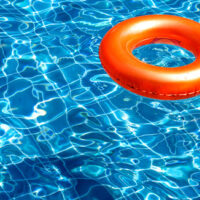Have You Or Your Child Been Injured At A Florida Pool?

It’s getting warmer out and pools are starting to feel irresistible. However, with more time being spent at pools, pool-related injuries and deaths are also on the rise. CDC data reflects that over 3500 drowning-related deaths occur every year, and 1 in 5 of those deaths are of children under the age of 14. As a parent and/or a pool owner it is important to understand how to keep your pool and children safe this summer.
Understanding Florida Premises Liability Law
Under Florida law, pool owners owe a reasonable duty of care to individuals on their property. The degree of care owed varies based on the relationship between the pool owner and the injured party. For instance, someone who trespasses on a privately owned pool will not always be owed the same level of care as an invited guest. There are three classifications for individuals who are injured on your property under Florida law.
- For privately owned pools, invitees are essentially invited guests. For public pools and businesses, invitees are customers of the business or individuals there to use the pool. The main distinguishing characteristic of invitees is that their presence is beneficial to the pool owner as well. The level of care owed depends in part on whether the pool is privately or publicly owned. For instance, public pools may have an expectation of supervision by a trained lifeguard, whereas private pools likely don’t. In general, pool owners owe the highest duty of care to invitees. They must warn invitees of known dangers, such as slippery or uneven ground around the pool and possible hazards. Pool owners must also repair and maintain the pool in order to avoid injuries to invitees.
- Licensees, like invitees, are invited onto the property by the pool owner, but unlike invitees, their presence on the property does not benefit the property owner. People invited to a party are licensees because they are there for their own benefit, whereas someone who goes into a store to buy something would be an invitee, because they are benefiting the property owner. The duty of care owed to licensees is lower, but the property owner must still warn them of any non-obvious risks.
- In general, property owners do not owe a duty of care to trespassers. However, they may be found liable for injuries that a trespasser suffered due to non-obvious hazards and not as a result of their own negligence. However, children are an exception to this rule due to the doctrine of attractive nuisance. Because pools are considered irresistible to children, Florida property owners are held liable for maintaining them and must take extra precautions to ensure that children will be safe and unable to gain access to the pool, including all-around fencing, a child-locked gate, and alarms around pool entrances.
Talk to a Florida Personal Injury Attorney
If you or your child have suffered an injury at a pool, the experienced Delray Beach personal injury attorneys at Lyons & Snyder are prepared to zealously advocate on your behalf and help you get the compensation that you are entitled to. Call Lyons & Snyder today to schedule your free consultation.
Resource:
cdc.gov/homeandrecreationalsafety/water-safety/waterinjuries-factsheet.html
